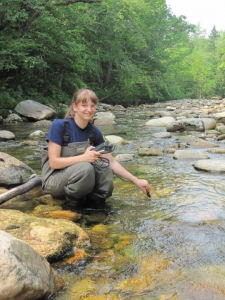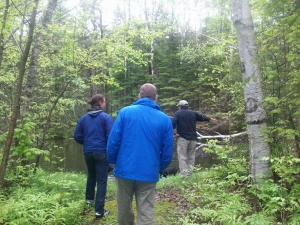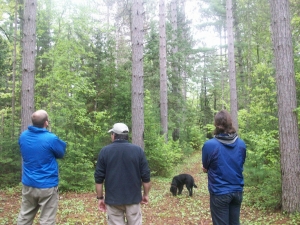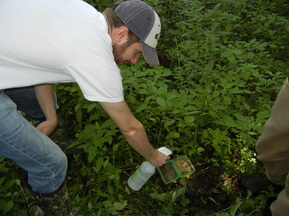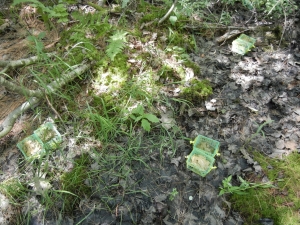Jessica Balukas, Graduate Researcher, University of Maine
As a biologist and ecologist by training, I never imagined being placed in the School of Economics when I applied to the University of Maine’s graduate program. I have never been able to bound my interests within the realms of one discipline, so applying to the interdisciplinary Ecology and Environmental Sciences Program was most logical. After submitting my application, I emailed a few Ecology and Environmental Sciences professors who shared similar interests to my own, including interests in framing environmental conservation in ways that encourage human participation and improve awareness of environmental issues. I was surprised to learn that most of these professors were economists. Their enthusiastic responses to my application prompted my entrance into the social science world.
Although learning the economic fundamentals has been a bit overwhelming at times (after learning that econometrics was a required course for my curriculum, I had to search the term on the internet before enrolling in the course), I have enjoyed learning new approaches to environmental conservation. A conservation biology course in college made me appreciate the need to better incorporate human wants and needs into the conservation equation, but until recently I still didn’t have the tools to do so. Strong training in microeconomic theory, econometrics, and resource economics has provided the missing pieces, allowing me to better understand and address the human role in environmental issues.As an interdisciplinary student and research assistant on a coupled natural and human systems research team, I have chosen to incorporate both ecological and economic elements in my thesis research. The economic chapter focuses on the role of landowners in vernal pool conservation. Many vernal pools are located on private land, necessitating the cooperation of private land owners in the conservation process. My research will investigate the different preferences among landowners and determine the implications of landowner preferences and behavior on the design and effectiveness of vernal pool conservation strategies. This research will involve learning many new evaluation techniques. I am excited to perform work that has a direct link to policy and management. Integrating landowner concerns with environmental conservation concerns is crucial to achieve lasting and effective conservation outcomes.
The ecological portion of my thesis is based on a field experiment in evaporated vernal pools. I am investigating terrestrial insect communities in and around vernal pools after summer drying and determining whether human development influences these communities. My background is definitely field-work intensive, and I enjoyed getting outside and collecting samples again. I didn’t even mind processing the samples that were crawling in spiders! This research also involves developing many new skills, including identifying terrestrial insects and analyzing the results using statistical methods. Because of my diverse interests, I have enjoyed spanning disciplines from the biophysical and social sciences. A strong understanding of both types of science is allowing me to better understand and address the challenges associated with environmental conservation.

